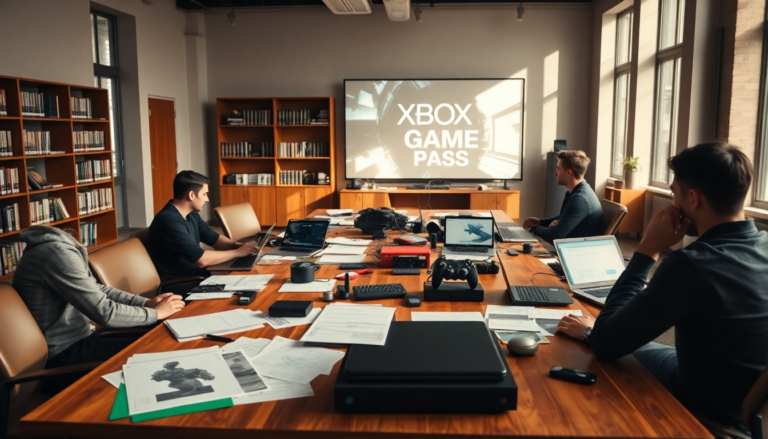Argomenti trattati
In a recent commentary, Raphael Colantonio, the former founder of Arkane Studios, raised some serious red flags about Xbox Game Pass and what it might mean for the future of both gamers and developers. Following Microsoft’s annual Xbox Games Showcase, Colantonio didn’t hold back, criticizing what he sees as an over-reliance on this subscription model, suggesting it could spell trouble for the entire gaming industry.
Game Pass: A Double-Edged Sword for the Gaming Community
Since its launch, Xbox Game Pass has taken the gaming world by storm, offering an impressive library of titles for a flat monthly fee. Sounds great, right? But Colantonio argues there’s a catch. In a post on the social media platform X, he expressed his reservations, stating, “I think Game Pass is an unsustainable model that has been increasingly damaging the industry for a decade, subsidized by MS’s ‘infinite money’.” He warns that this model might not be able to coexist with traditional gaming revenue streams, hinting at a future where it could either dominate the market or crumble under its own weight.
Colantonio elaborated further, emphasizing that while Game Pass seems like a win for gamers now, it could have far-reaching consequences down the line. He likened it to a “long game” that threatens the entire ecosystem of game development. His concerns echo a common sentiment: as the landscape shifts, the ways in which games are distributed and monetized might stifle the innovation and creativity that the industry thrives on. Colantonio cautioned, “Only the gamers like it because the offer is too good to be true, but eventually even gamers will hate it when they realize the effects on the games.”
The Industry’s Trajectory Amid Subscription Services
Colantonio’s worries are not without merit. The similarities between Game Pass and traditional streaming services like Netflix and Disney+ are becoming hard to ignore. Initially praised for their vast offerings at low prices, these platforms have faced backlash as subscription costs have risen and the quality of content has wavered. Could the gaming industry be on the same path, where early consumer satisfaction gives way to mounting frustration as the market evolves?
Colantonio’s insights are backed by his extensive history in the gaming world. After steering Arkane Studios through the creation of critically acclaimed titles like Dishonored and Prey, he left in 2017, just before Microsoft acquired ZeniMax Media in 2021. His experience lends weight to his warnings, especially now that he’s at the helm of new projects at WolfEye Studios. He reflects on the rapid changes in the industry and cautions that the current success of Game Pass might be clouding our vision of its potential long-term pitfalls.
Future Outlook for Game Developers and Players
As Microsoft doubles down on Game Pass, it’s clear that the future of Xbox is closely tied to this subscription model. But what does that mean for respected studios like Obsidian and Bethesda, now part of the Microsoft family? The stakes are high, and the direction the industry takes will likely shape upcoming releases and game development strategies.
In conclusion, Colantonio’s warnings serve as a vital reminder for gamers and developers alike: we must stay alert to the implications of subscription-based gaming. The buzz around Game Pass may overshadow potential pitfalls, but it’s crucial to consider the broader impact on the industry. As we keep an eye on these developments, discussions about sustainable business models in gaming are more important than ever. Are we prepared for the changes that lie ahead?

